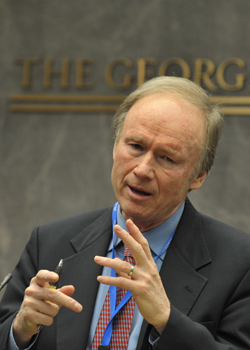Professor César F. Rosado Marzán has posted a new article to SSRN titled Protecting Workers as a Matter of Principle: A South American View of U.S. Work Law (working paper, coauthored with Sergio Gamonal C.). Read the abstract below:
Scholars have noted that judicial conservatism has eroded labor and employment law (hereinafter referred to as “work law”) in the U.S. and elsewhere. The current “Roberts Court” has kept in line with such conservatism, perhaps with sharpened audacity, deciding a number of key work law cases in the favor of employers and under controversial legal grounds. Moreover, the current seemingly pro-employer judicial hue over recent work law cases comes at the heels of recent legal scholarship calling for a rethinking of the “idea of labor law,” the demise of the standard employment contract and the upsurge in labor precarity. Work law, which has always been under attack, has seen better days in the U.S.
But work law has experienced a rebirth in South America, after years of authoritarian rule and dictatorship. There could be lessons that can be drawn from the South American experience for the U.S. and other jurisdictions where work law has suffered setbacks. One of the key institutionalized methodologies that have helped to reconstruct work law in South America has been the use of “principles.” This article discusses the central pillar of South American work law, the principle of protection. Under this principle, one of work law’s essential functions is to protect workers from employers because workers are “weaker parties” in employment relations.
The protective principle is operationalized in South American work law through the rule of in dubio pro operario, which essentially means that a judge must rule in favor of the worker when confronting hard cases. In other words, the protective principle reins in conservative judicial activism, or directs judicial discretion in a manner consistent with the tutelary functions of work law.
After describing Latin American work law’s protective principle, we turn to the U.S. to explain how protection plays a role there. While we agree that U.S. work law has been deficient in protecting workers because of, among other reasons, conservative judicial activism and the prevalence of employment at will, we explain how statutory U.S. work law remains protective in principle and something like the rule of in dubio pro operario prevails sometimes in the U.S. A more explicit reference to the protective nature of work law by U.S. legal academics and judges can help buttress work law in the U.S.
Download the article from SSRN here.



Leave a Reply